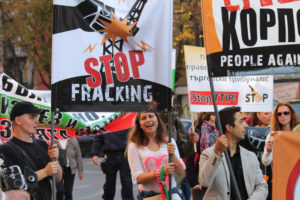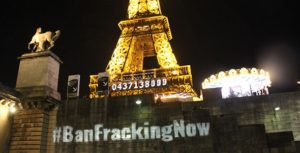Since 2012, the Global Frackdown – an international day of action initiated by Food & Water Watch to ban fracking – has helped connect activists across the globe and demonstrated the growing power of the movement to stop fracking, gas infrastructure, sand mining and other related extraction methods. This movement is fueled by increasing scientific evidence of the impact of fracking on water, air, health, seismic stability, communities, and the climate on which we all depend.
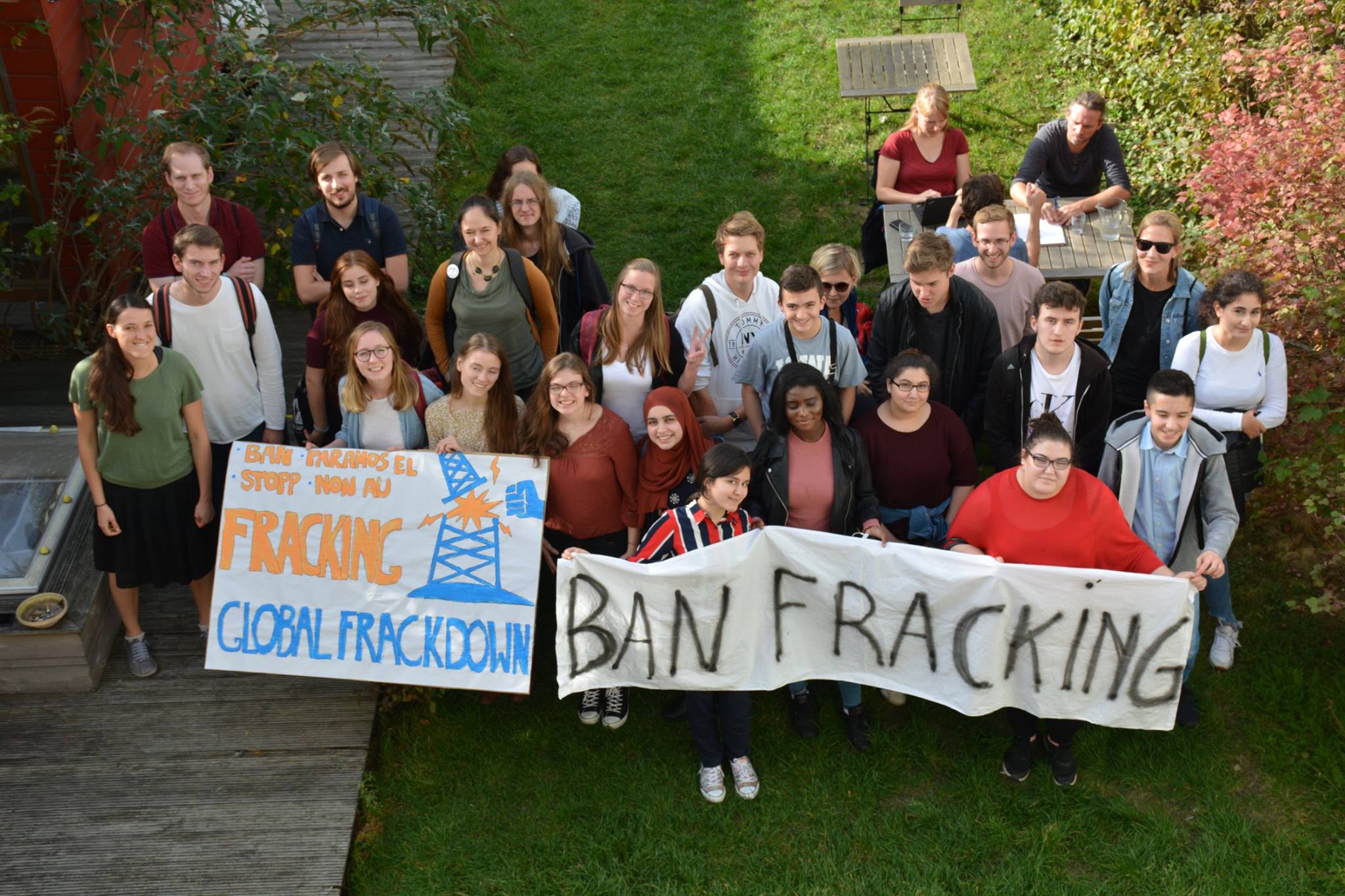
This year groups from around the globe – moved by our joint spirit of “Not here or anywhere!” – rallied again in solidarity for a Global Frackdown.



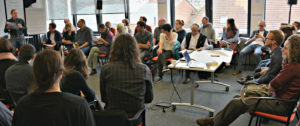 What happens if a bunch of activists working to halt gas infrastructure and raise awareness about the issues around gas meet in Brussels? A global network of “gastivists” is launched.
What happens if a bunch of activists working to halt gas infrastructure and raise awareness about the issues around gas meet in Brussels? A global network of “gastivists” is launched.
 Earlier this month the
Earlier this month the 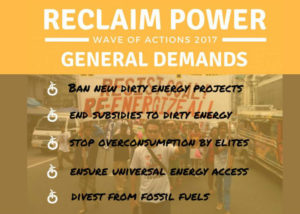 This year again, a wave of people power will roll over the globe, showing that a just transition to a clean, democratic energy system is necessary – and possible!
This year again, a wave of people power will roll over the globe, showing that a just transition to a clean, democratic energy system is necessary – and possible!